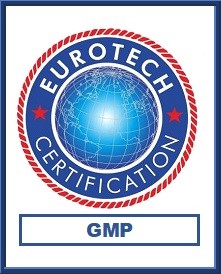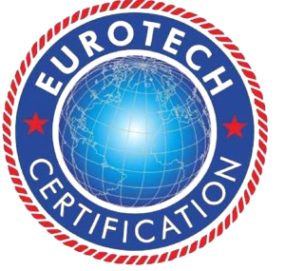What is a Global G.A.P Certificate?
The GlobalG.A.P. (Good Agricultural Practices), encourages sustainable agriculture and the minimization of the use of agro-chemicals to benefit farmers, retailers and consumers.
Retailers came together to show their customers that the products their products are manufacturing with a safe and sustainable guarantee and introduced the concept of GAP (Good Agricultural Practices). EUREPGAP (now GLOBALGAP), which was initiated as an initiative of the European Retailers Product Working Group (EUREP – Euro-Retailer Produce Working Group) in 1997, aims to ensure the safety of agricultural products from farm to fork and to ensure food safety according to the requirements developed by the EUREPGAP Technical and Standards Committee.
GlobalG.A.P. certification is a leading farm assurance program. can cover:
Food safety and traceability
Environment (including biodiversity)
Workers’ health, safety and welfare
Animal welfare
Integrated Crop Management (ICM),
Integrated Pest Control (IPC),
Quality Management System (QMS),
Hazard Analysis and Critical Control Points (HACCP)
Therefore, GlobalG.A.P. is the certificate which demonstrates you are providing an agricultural production that does not harm the environment, human and animal health and that you ensure your food safety.
BENEFITS OF GLOBALG.A.P. CERTIFICATE
Obligation for compliance requirements,
Greater efficiency in production,
Encouraging environmentally sustainable farming practices,
Improve business performance, efficiency of farm processes and management,
Reducing your exposure to food safety and product safety reputational risks,
Indicates the starting level of quality,
Optimizing the use of natural resources,
Acceptance in countries by international recognition (passport for manufacturer and/or exporter to for EU market),
Facilitating access to new local and global customers, markets, suppliers and retailers,
To improve the quality of life of producers, local people and society.
COUNTRIES WHERE GLOBALG.A.P. MARKING IS REQUIRED
The GlobalG.A.P. certificate is prerequisite for the export of fresh fruits and vegetables to European Union countries. It is a product tracking assurance that European Union (EU) retailers provide to their consumers.
The producer and/or exporter who wants to export to the EU has to prove to the consumer, through the retailer, that his product fulfills these commitments.
WHICH PRODUCTS CAN BE CERTIFIED WITH GLOBALG.A.P.?
The scopes of GlobalG.A.P. (EUREPGAP) which are valid all over the world and published standards are as below examples:
Production Material (Seedling, Seed),
Fruits and vegetables,
Flowers and Ornamental Plants,
Integrated Farm Security (Cattle and Ovine Farms, Grain, Tea, Feed etc.),
Integrated Aquaculture Security (Trout, Bass Farms etc.),
Green (Raw) Coffee,
Tea standard,
Compound feed standard.
HOW LONG DOES IT TAKE TO GET CERTIFICATE?
Due to certification rules differences, the certification duration cannot be estimated without knowing of product, production and related regulation requirements, preparedness of applied company, certification process ongoing conditions. So the process can vary from one client to another.
To shorten the process, the responsibility of the producers is to have knowledge of their product’s requirements and apply when all requirements are ready for certification.
WHAT ARE THE ALTERNATIVES FOR GlobalG.A.P. CERTIFICATION AND AUDIT?
OPTION 1: INDIVIDUAL CERTIFICATION
Manufacturer internal auditExternal audit by certification body
OPTION 2: GROUP CERTIFICATION
Internal management and control systemManufacturers and Farmer group internal audit
External audit by certification body
OPTIONS 3 and 4: BENCHMARKING – EQUIVALENCE
Option 3: Individual Producer Apply for GlobalG.A.P. Benchmarked Project Certificate.Option 4: The Farmer Group Applies for the GlobalG.A.P. Benchmarked Project Certificate.
WHAT IS THE RELATIONSHIP OF GlobalG.A.P. WITH OTHER MANAGEMENT SYSTEMS?
GlobalG.A.P. is considered as a quality system in the agricultural sector and focuses on production in the field, adopts integrated agriculture principles. Also it is in parallel with HACCP and ISO 9001 in terms of food safety and quality, ISO 14001 standards in terms of environmental management and OHSAS 18001 standards in terms of occupational health and safety. It can be adopted with monitoring of Integrated Pest Management and Integrated Crop Management methods.
